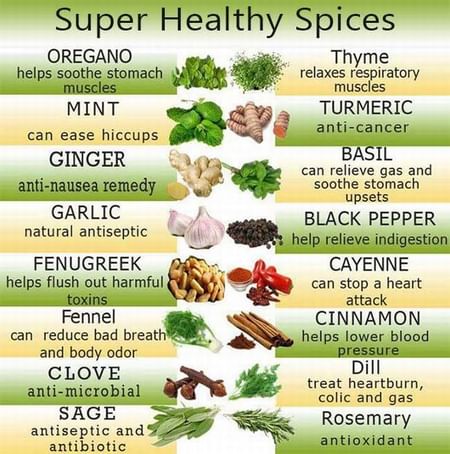1. Reduce the amount of sugary drinks
American diets include sweet drinks like soda and sweetened teas, juices from fruit, as well in sweetened drinks like teas that are sweetened. Numerous studies reveal that beverages that contain sugar increase the risk of heart disease, type 2, and diabetes even among people with low body fat. Sugar-sweetened beverages are also harmful to children because they may cause weight gain in children, and also conditions that do not usually occur until the age of adulthood, like type 2 diabetes, high blood pressure and non-alcoholicfatty fatty liver disease. Healthier alternatives include:
Water
unsweetened teas
sparkling water
Coffee
2. Get enough sleep
It is crucial to sleep well and get enough rest. Poor sleep can cause insulin resistance, affect the hormones that stimulate appetite, and decrease your mental and physical performance. Poor sleep is one of your most risk factors for weight gain or obesity. If you don't get enough sleep tend to make unhealthy eating choices that lead to unintended weight gain (28TrustedSource, 29,TrustedSource). Check out updated
Dream Music tips.

3. Stay hydrated Drinking water helps to ensure that your body is functioning well and your blood volume is adequate. Drinking water is the best way to stay hydrated since it's devoid of sugar, calories, and additives. There is no one right amount of water that everybody must drink each day. But, it's crucial to make sure you drink enough to quench your thirst (35Trusted Source).
4. Avoid sleeping near bright lights.
When you're exposed lights -- which contain blue light wavelengths at night it can disrupt the production of the sleep hormone Melatonin. Wearing blue light blocking sunglasses can help you minimize your exposure to blue lights, particularly if you're using a computer for long periods during the day. It is also recommended to stay away from screens for at least 30 minutes to an half hour before you go to bed. This could cause your body to produce more melatonin naturally throughout the night, helping you rest better.
5. Consume lots of fruits & vegetables
Prebiotic fiber, vitamins minerals, antioxidants, and prebiotics are abundant in both vegetables and fruits. Many of these nutrients have strong beneficial effects on health. Research has proven that those who consume more vegetables, fruits, and vitamins have longer lives, are healthier, and are less likely be diagnosed with obesity, heart disease and other illnesses. Have a look at this updated mudra for health info.

6. You must eat enough protein. Protein is essential for optimal health. It supplies the essential ingredients your body needs to build new cells. This nutrient is particularly important for maintaining an ideal body weight. A diet high in protein may increase your metabolic rate , or calories burned , while making you feel full. You may feel less hungry and less inclined to snack during the night.
7. Get moving!
Cardio is one the best things that you can do for your physical and mental well-being. It's particularly effective at reducing belly fat, the type of fat that is harmful that builds up in your organs. A reduced belly fat level can result in significant improvements to the health of your metabolism. The Physical Activity Guidelines for Americans recommends that we aim for 150 minutes of moderate intensity activity every week.
8. Lift massive weights
Resistance and strength training are some of the best exercises you can do to strengthen the muscles of your body and enhance your body's overall composition. This could lead to dramatic improvements in the health of your metabolism. It could increase the sensitivity of insulin that will allow you to regulate the blood sugar levels. It can also improve your metabolic rateor the amount of calories that you burn at the rest of your day. If you don't have weights, they can use their own weights or bands to build resistance. It will give you the same results as a regular exercise, but with a lot benefits. The Physical Activity Guidelines for Americans recommends twice a week. See this cool baked cauliflower mac tips.

9. Obesity can be reduced through eliminating abdominal fat. Visceral fat, also known as excessive abdominal fat is a risky type and the distribution of fat has been linked to an increased risk of heart disease and diabetes type 2. It's possible to find your waist measurement or waist-to-hip ratio more than a reliable indicator of your overall health and well-being as opposed to your weight. You can lose belly fat by reducing refined carbs, increasing fiber and protein intake, and decreasing stress (which could lower cortisol levels, a stress hormone that can cause abdominal fat to deposition).
10. Meditate
Stress can adversely affect your health. It can affect your blood sugar levels, your food choices, susceptibility to sickness and weight gain, fat distribution, and many more. It is important to find effective ways to deal with stress. Meditation is one of them, and it has some research-based evidence that supports its use in managing stress and improving your health. In a study that involved 48 participants with high blood pressure or type 2 diabetes or both, the researchers discovered that meditation was able to reduce LDL (bad) cholesterol as well as inflammation, compared to the control group. Additionally, participants who meditated had better physical and mental wellbeing.
The bottomline
These are only a few of the items that will help you improve your diet and overall health. Still, if you're looking to lead an active and healthy lifestyle be sure to not only focus on your food choices. The most important factors are sleep, exercise and social interactions. The evidence-based suggestions above can be easily implemented into small changes that have huge impact on your overall well-being.